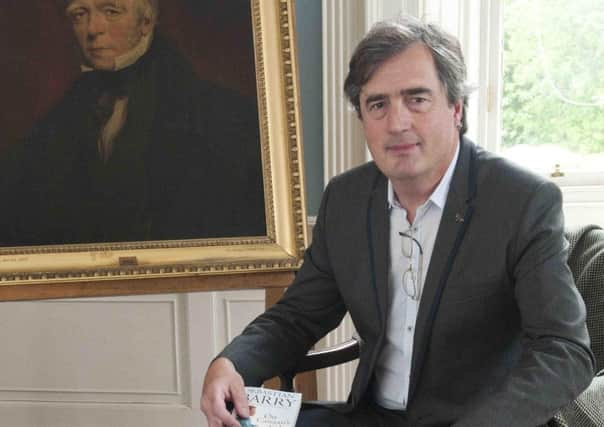Winning West


Thomas McNulty, the narrator, is a famine refugee from Sligo, the only surviving member of his family. Sheltering from the rain under a hedgerow in Missouri, he meets John Cole, “a dandy-looking sort of boy”, his own age, a wanderer from New England, one-eighth Indian. They hitch up together and come to a frontier mining-town where a sign on the Saloon door says “Clean Boys Wanted”. Poor boys in the West will take any job going, and, in that almost womanless town, they are hired as transvestite dancers. They outgrow the work, and, pledged to be always together, enlist as cavalry troopers. They make good soldiers.
Indian wars and the horrors of the inhospitable Plains are brilliantly described. It’s as good as a John Ford Western, because it’s beautiful and romantic, but nobody dies as easily or bloodlessly as they did on the screen in the great days of Hollywood. Moreover, though the plot turns on a moment of treachery by an Indian chief, there’s no comfortable division between Right and Wrong. McNulty recognises than winning the West is a cruel business, rank with injustice; nevertheless, though the phrase “Manifest Destiny” doesn’t appear in the novel, that’s the assumption that is implicit in the war.
Advertisement
Hide AdAdvertisement
Hide AdWhen John and Thomas are discharged, they head off, taking with them a young Indian girl as a servant, though they will adopt her as their ward or daughter. They rejoin the old saloon-keeper now running a theatre, and are employed performing a sort of charade in which John Cole plays the man and Thomas is the girl. This seems to them as easy and natural as the rising and setting of the sun. They then re-enlist to fight in the Union Army in the Civil War, turn to farming on a comrade’s land after it, before old scars from the Indian wars re-open and there is a shockingly violent climax.
Barry has found a beautifully natural voice for his narrator, capable of a wide and always credible register of speech. One of the many remarkable and admirable things about this novel is that, though it is indeed packed with action and rich in dramatic scenes, it nevertheless has a leisurely feel.
This is partly because the narrator takes time to offer his reflections, partly because of the richness of the description of landscape, trees, fields, birds and beasts, and the bleakness of the plains in winter, the oppressive weight of the sun in summer.
You may want to read quickly, eager to know what happens next, but Thomas always invites you to take the time to smell the flowers. Again, I think of one of the last of Ford’s great movies, The Horse Soldiers. “Everything bad gets shot at in America”, says John Cole, “and everything good too.” So they “ride on the whole night and we ain’t going to even dream of bedding down and sleeping. The night sky clears the way it does all of its own choosing…”
Advertisement
Hide AdAdvertisement
Hide AdThere’s a lovely music to Barry’s prose, Irish rhythms blended with country and western, and the narrative has also the accepting clarity of a Border Ballad where “They swakkit their swords till sair they swat / And the blude ran doun like rain”.
And the love-story? This is so delicately and unobtrusively done that a rapid reader might even be unaware of it. Yet it’s at the heart of the novel. There’s comedy too, sometimes coarse , sometimes gentle.
In truth there’s pretty well everything, and the novel is so rich that I’m sure a second reading would offer further and deeper pleasures.